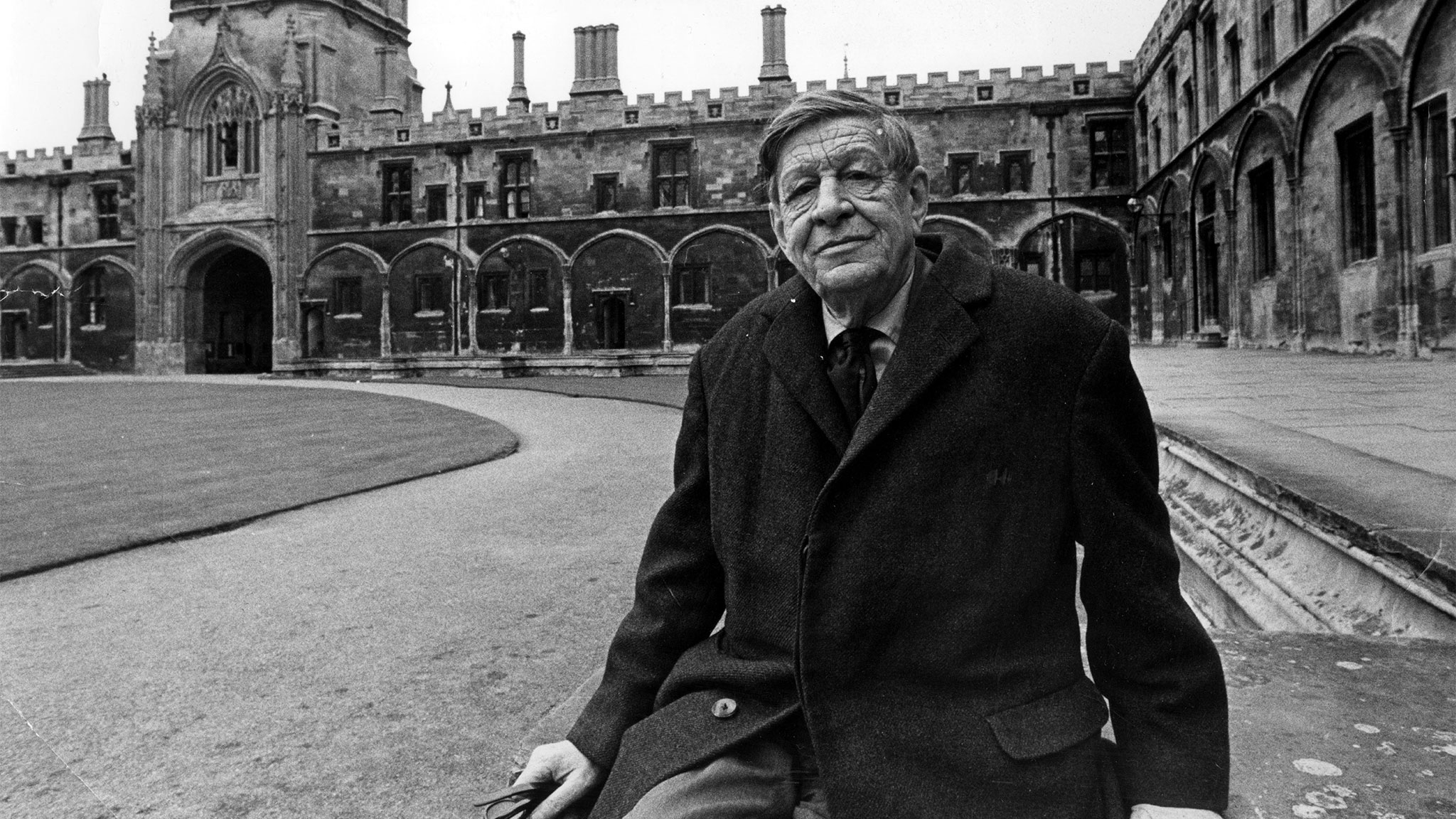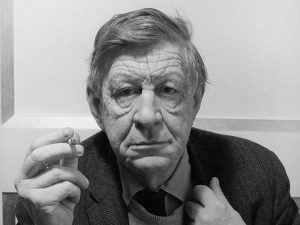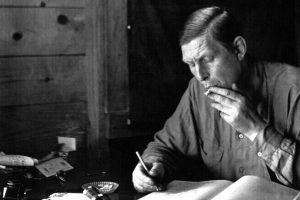
“A poet is, before anything else, a person who is passionately in love with language.”

Wynstan Hugh Auden, known under the pseudonym “W.H. Auden”, was born on February 21, 1907, in York, England (UK). For the first portion of his academic career, Auden had been in pursuit of a career in the sciences, having studied science and engineering at Oxford University before he discovered his calling to write. This scientific background would not vanish from his life completely, however, as it would later make appearances in his work
By 1930, Auden published a collection of poetry (titled Poems) with the help of T.S. Eliot. The collection was widely successful and placed him on the map as one of the most influential writers in the 20th century. As a writer, Auden was most well known for his ability to write in nearly any form. He was also a playwright and essayist.
The themes of Auden’s writing are attributed to the political and social environment he grew up in. Topics found most often in his writing include, but are not limited to: religion, citizenship, love, and politics.

Auden migrated to the United States shortly before World War II where he met his lifelong partner, Chester Kallman, who was also a poet. Despite coming from a largely religious background, Auden was influenced largely by the culture of the Weimar Republic, which had a prevalent LGBTQ subculture. Many of his love poems were written for Kallman, although Auden never specifies gender in his poems.
In 1948 Auden published a six part poem called The Age of Anxiety, which won a Pulitzer Prize. He later received the National Book Award for Poetry for his book The Shield of Achilles, published in 1956.
Along with writing, Auden also held several positions as a visiting professor at universities around the United States. In 1950, Auden taught at Mount Holyoke College, and would later return to perform a poetry reading.
After his health began to wane, Auden relocated to Austria, where he resided until his passing on September 29, 1973.
Selected Works
About suffering they were never wrong, The old Masters: how well they understood Its human position: how it takes place While someone else is eating or opening a window or just walking dully along; How, when the aged are reverently, passionately waiting For the miraculous birth, there always must be Children who did not specially want it to happen, skating On a pond at the edge of the wood:
The winds must come from somewhere when they blow, There must be reason why the leaves decay; Time will say nothing but I told you so.
“As I Walked Out One Evening” (1940)
‘In the burrows of the Nightmare Where Justice naked is, Time watches from the shadow And coughs when you would kiss.
Came to a public meeting; the speaker got up and said: 'If we let them in, they will steal our daily bread'; He was talking of you and me, my dear, he was talking of you and me.
Sources:
- https://en.wikipedia.org/wiki/W._H._Auden
- https://www.poets.org/poetsorg/poet/w-h-auden
- https://www.poetryfoundation.org/poets/w-h-auden
- https://www.biography.com/people/wh-auden-9192132
- http://rictornorton.co.uk/auden.htm
- https://www.thefamouspeople.com/profiles/wystan-hugh-auden-3141.php
-
The Cambridge Companion to W. H. Auden edited by Stan Smith